Navigating the Caribbean: A Guide to Time Zones
Related Articles: Navigating the Caribbean: A Guide to Time Zones
Introduction
With great pleasure, we will explore the intriguing topic related to Navigating the Caribbean: A Guide to Time Zones. Let’s weave interesting information and offer fresh perspectives to the readers.
Table of Content
Navigating the Caribbean: A Guide to Time Zones
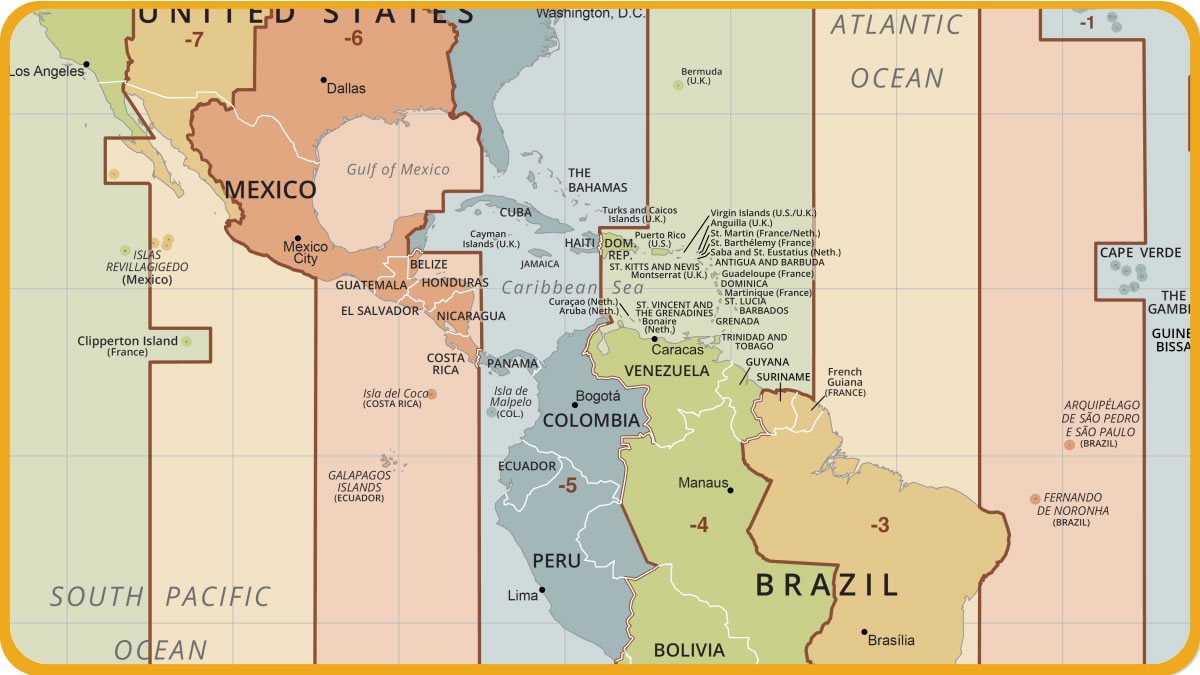
The Caribbean, a vibrant tapestry of islands and coastlines, boasts a rich cultural diversity and stunning natural beauty. However, its geographic spread across multiple longitudes also presents a unique challenge: understanding and navigating the various time zones that govern the region.
This article delves into the complexities of time zones in the Caribbean, providing a comprehensive overview of the different time zones, their historical context, and practical implications for travel, communication, and business.
A Tapestry of Time Zones
The Caribbean, a region encompassing over 700 islands, cays, and reefs, stretches across a vast expanse of the Atlantic Ocean. This geographical diversity translates into a complex time zone map, with islands adopting various time standards.
The most prevalent time zone in the Caribbean is Atlantic Standard Time (AST), which is four hours behind Coordinated Universal Time (UTC). Countries and territories adhering to AST include:
- The Bahamas
- Barbados
- Bermuda
- Dominica
- Grenada
- Montserrat
- Saint Kitts and Nevis
- Saint Lucia
- Saint Vincent and the Grenadines
- Trinidad and Tobago
- Turks and Caicos Islands
- U.S. Virgin Islands
Another significant time zone is Eastern Standard Time (EST), which is five hours behind UTC. This time zone is observed by:
- The Cayman Islands
- Puerto Rico
- British Virgin Islands
The Central Standard Time (CST), six hours behind UTC, is adopted by:
- Belize
Further west, Mountain Standard Time (MST), seven hours behind UTC, governs:
- Mexico (including the Yucatan Peninsula)
The time zone map of the Caribbean is not static. Some islands, particularly those with strong historical ties to European powers, observe Daylight Saving Time (DST) during specific periods. This practice, however, is not universal across the region.
Historical Context: Shaping Time in the Caribbean
The time zones currently observed in the Caribbean are a product of historical and political influences. During the colonial era, European powers imposed their timekeeping systems on their colonies, leading to the adoption of different time zones.
For instance, British colonies adopted time zones aligned with their metropolitan centers, while French colonies followed the time of Paris.
The establishment of standard time zones in the 20th century further shaped the timekeeping landscape of the Caribbean. With the increasing importance of international communication and travel, the need for standardized timekeeping systems became evident.
Practical Implications: Navigating the Time Zone Maze
Understanding the time zones in the Caribbean is crucial for various aspects of life, including:
- Travel: Travelers must be aware of the time difference between their home country and their destination in the Caribbean to avoid scheduling mishaps and jet lag.
- Communication: Effective communication with businesses and individuals in the Caribbean requires knowledge of the local time zone.
- Business: Time zone differences can impact business operations, particularly in areas like scheduling meetings, managing international teams, and coordinating logistics.
- Emergency Response: In emergencies, accurate timekeeping is vital for coordination and response efforts.
FAQs: Unraveling the Time Zone Mystery
Q: What is the time difference between the Caribbean and the United States?
A: The time difference between the Caribbean and the United States varies depending on the specific location in the Caribbean and the time zone in the United States. For example, the Caribbean islands observing AST are four hours behind Eastern Standard Time (EST) in the United States.
Q: Does the Caribbean observe Daylight Saving Time?
A: Daylight Saving Time (DST) is not universally observed in the Caribbean. Some islands, particularly those with strong historical ties to Europe, observe DST during specific periods, while others do not.
Q: What is the best way to keep track of time zones in the Caribbean?
A: The best way to keep track of time zones in the Caribbean is to use a reliable online time zone converter or a world clock app. These tools provide accurate and up-to-date information on time differences across the globe.
Q: Are there any resources available to help me understand time zones in the Caribbean?
A: Yes, there are various resources available online that provide detailed information about time zones in the Caribbean. These resources include:
- Time and Date: This website provides a comprehensive time zone map and converter.
- World Time Zone: This website offers a user-friendly interface for comparing time zones across different locations.
- National Institute of Standards and Technology (NIST): This government website provides official time standards and information on time zones.
Tips: Navigating the Time Zone Landscape
- Plan ahead: When traveling to the Caribbean, research the local time zone and adjust your schedule accordingly.
- Use online tools: Utilize time zone converters and world clock apps to keep track of time differences.
- Communicate clearly: When communicating with individuals or businesses in the Caribbean, specify the time zone you are referring to.
- Be mindful of DST: If an island observes Daylight Saving Time, be aware of the time shift during the DST period.
Conclusion: A Unified Caribbean Through Time
While the time zones in the Caribbean may seem complex, understanding them is essential for navigating this vibrant region effectively. By understanding the historical context, practical implications, and available resources, individuals can navigate the time zone landscape with ease, fostering seamless communication, travel, and business interactions.
The time zone map of the Caribbean serves as a reminder of the region’s rich history and diverse cultural tapestry. It also highlights the importance of global connectivity and standardized timekeeping in a world increasingly interconnected. By embracing the complexities of time zones, we can foster deeper understanding and appreciation for the unique character of the Caribbean.

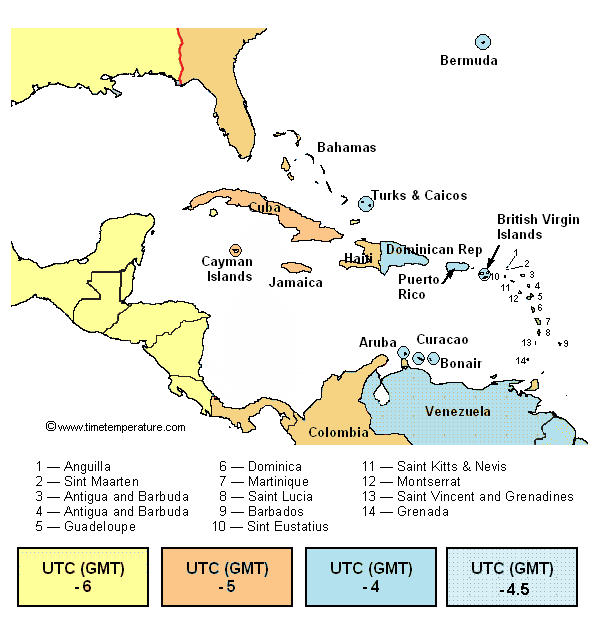
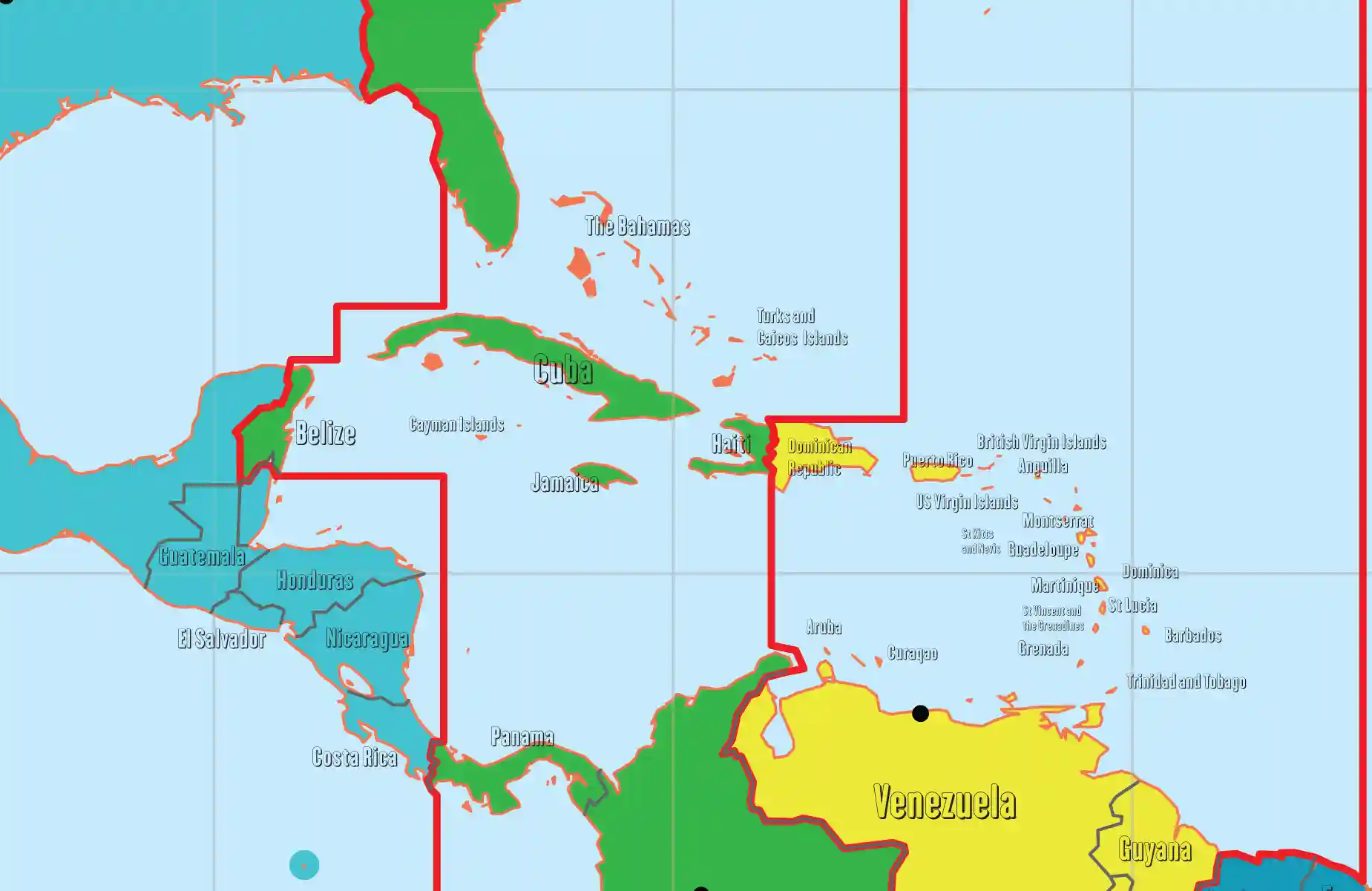
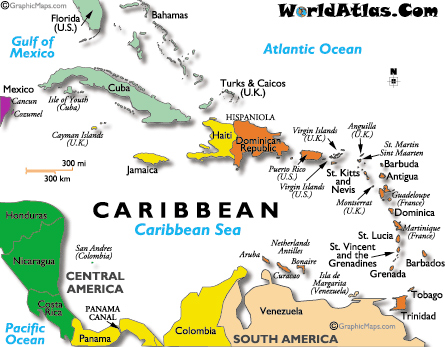
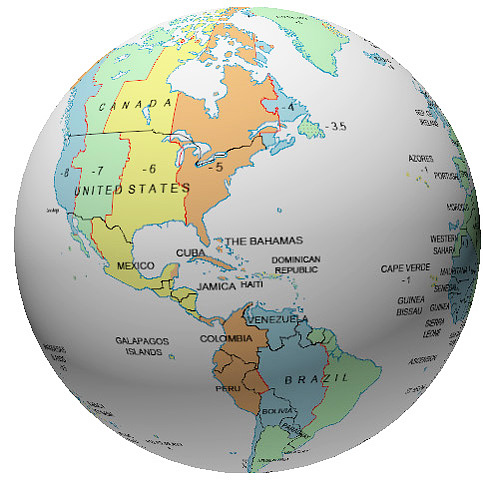
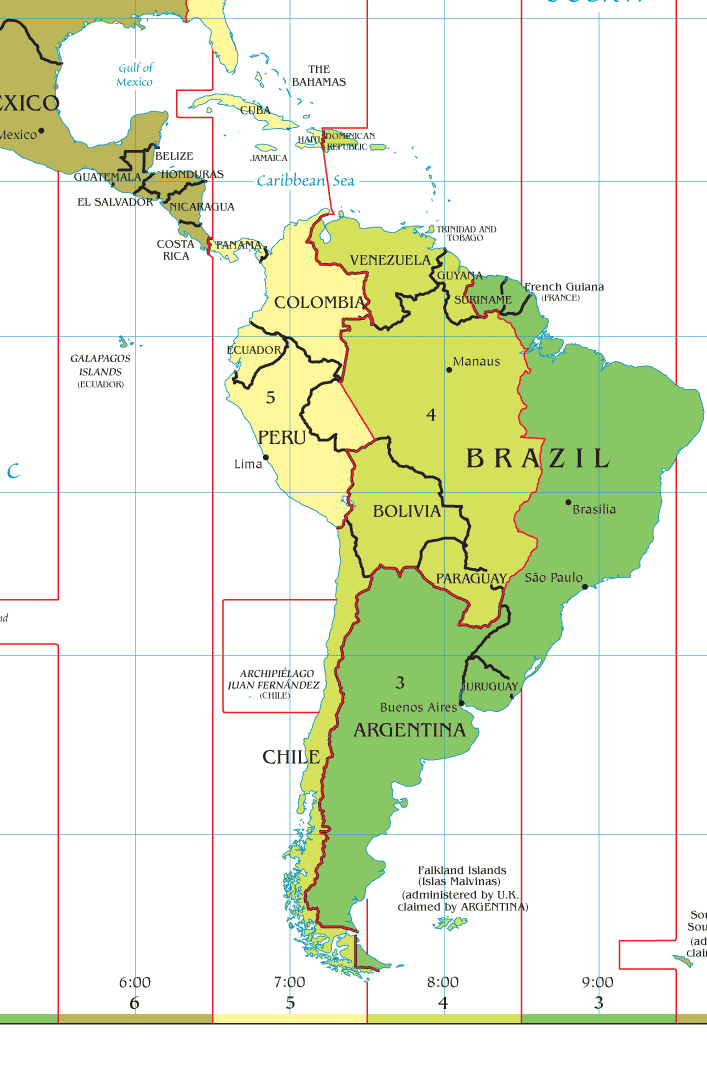


Closure
Thus, we hope this article has provided valuable insights into Navigating the Caribbean: A Guide to Time Zones. We hope you find this article informative and beneficial. See you in our next article!